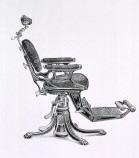| 话题中的页数: < [1 2] | "Please" in an instruction/user manual - to use or not? 论题张贴者: Dan Lucas
|
|---|
| From Japanese | Dec 9, 2020 |
The Japanese language is full of "下さい", a courtesy form that basically translates as "please" in English, and it can't be otherwise. It's the language that demands so.
One problem is when people translate too literally from Japanese, a fact that is not limited to non-native speakers only. Hence the abundant use of "please" in English manuals that originate in Japan. This is the reason why we see so many "per favore" in Italian translations. It's very unnatural, besides highli... See more The Japanese language is full of "下さい", a courtesy form that basically translates as "please" in English, and it can't be otherwise. It's the language that demands so.
One problem is when people translate too literally from Japanese, a fact that is not limited to non-native speakers only. Hence the abundant use of "please" in English manuals that originate in Japan. This is the reason why we see so many "per favore" in Italian translations. It's very unnatural, besides highlighting a lack of judgement and experience by the translator.
On the other hand, many Japanese agencies and end clients alike insist on keeping the equivalent of "please" in the target language too, because they worry that otherwise "it would sound too impolite" to the reader. A matter of culture, I would say. Still. ▲ Collapse
| | | | Dan Lucas 
英国
Local time: 03:57
正式会员 (自2014)
Japanese日语译成English英语
主题发起人 | Cultural indeed | Dec 9, 2020 |
Aliseo Japan wrote:
On the other hand, many Japanese agencies and end clients alike insist on keeping the equivalent of "please" in the target language too, because they worry that otherwise "it would sound too impolite" to the reader. A matter of culture, I would say. Still.
This is the thing, isn't it. I spend a fair amount of time first checking to see whether what I intuit to be right in English is actually correct (as opposed to being a habit of mine, or a regional characteristic), finding a semi-authoritative source to back it up, then explaining the issue to the client. It's often difficult to persuade them that a term or phrase that has been widely used in other translations may strike a jarring note in English.
Regards,
Dan
| | | | Tom in London
英国
Local time: 03:57
正式会员 (自2008)
Italian意大利语译成English英语
This thread has reminded me that what is considered polite or impolite may be completely different in two different cultures. Especially between Japanese and Western cultures.
[Edited at 2020-12-09 09:10 GMT]
| | | |
Check out the Apple style guide too as I've read they specifically say not to use it.
| | |
|
|
|
Dan Lucas 
英国
Local time: 03:57
正式会员 (自2014)
Japanese日语译成English英语
主题发起人
Sheila Wilson wrote:
Check out the Apple style guide too as I've read they specifically say not to use it.
Excellent idea - that is indeed what they say.
| | | | Lingua 5B 
波斯尼亚黑塞哥维纳
Local time: 04:57
正式会员 (自2009)
English英语译成Croatian克罗地亚语
+ ...
| | I will translate | Dec 9, 2020 |
If there is "please do something..." in the source text, I will automatically and naturally translate this polite style into the target language.
| | | | Samuel Murray 
荷兰
Local time: 04:57
正式会员 (自2006)
English英语译成Afrikaans南非语
+ ...
Laurent Mercky wrote:
If there is "please do something..." in the source text, I will automatically and naturally translate this polite style into the target language.
Yes, but in some languages, the same amount of "please" can come across as fawning or servile or even annoyance. If I visit a business person's office and he says "Please take a seat" in English, I know that he's just being polite and telling me that I'm welcome to sit. But if the person said "Please take a seat" in my native language, I would wonder if I have offended him for not having taken the initiative to sit sooner (the polite equivalent of "Please take a seat" in my native language is "Feel free to take a seat"). If I'm invited for a meeting with the bank manager, and he says "Please take a seat" in English, I would not [yet] be worried, but if he said the identical words in my native language, I would break out a sweat and prepare for the worst.
| | |
|
|
|
| |
Samuel Murray wrote: Laurent Mercky wrote:
If there is "please do something..." in the source text, I will automatically and naturally translate this polite style into the target language. Yes, but in some languages, the same amount of "please" can come across as fawning or servile or even annoyance. If I visit a business person's office and he says "Please take a seat" in English, I know that he's just being polite and telling me that I'm welcome to sit. But if the person said "Please take a seat" in my native language, I would wonder if I have offended him for not having taken the initiative to sit sooner (the polite equivalent of "Please take a seat" in my native language is "Feel free to take a seat"). If I'm invited for a meeting with the bank manager, and he says "Please take a seat" in English, I would not [yet] be worried, but if he said the identical words in my native language, I would break out a sweat and prepare for the worst.
absolutely true, "please" may be also considered with a more negative approach.
But here I was just thinking about user's manual, booklets and so on.
While speaking directly with someone, it may have a slightly different meaning.
| | | | Lingua 5B 
波斯尼亚黑塞哥维纳
Local time: 04:57
正式会员 (自2009)
English英语译成Croatian克罗地亚语
+ ...
| Same in my language. | Dec 10, 2020 |
Samuel Murray wrote: Laurent Mercky wrote:
If there is "please do something..." in the source text, I will automatically and naturally translate this polite style into the target language. Yes, but in some languages, the same amount of "please" can come across as fawning or servile or even annoyance. If I visit a business person's office and he says "Please take a seat" in English, I know that he's just being polite and telling me that I'm welcome to sit. But if the person said "Please take a seat" in my native language, I would wonder if I have offended him for not having taken the initiative to sit sooner (the polite equivalent of "Please take a seat" in my native language is "Feel free to take a seat"). If I'm invited for a meeting with the bank manager, and he says "Please take a seat" in English, I would not [yet] be worried, but if he said the identical words in my native language, I would break out a sweat and prepare for the worst.
You described it so well, Samuel. If someone told me "Please, take a seat" in my target language, I'd experience a combo of cringe and dramatic anticipation. lol
| | | | | Depends on context | Dec 10, 2020 |
I'm technical translator and translate mainly technical texts (instruction manuals, descriptions, etc.). In my language combination (EN-PL), I meet "please" sometimes in the consumer product context like for a DVD player, or hair dryer. I simply skip this word.
In industrial texts (manufacturing machines, vehicles, computers, etc.), "please" can be met (still, not frequently) when the text wasn't written in any of the Anglosaxon countries (to be on the safe side: I include UK, US, I... See more I'm technical translator and translate mainly technical texts (instruction manuals, descriptions, etc.). In my language combination (EN-PL), I meet "please" sometimes in the consumer product context like for a DVD player, or hair dryer. I simply skip this word.
In industrial texts (manufacturing machines, vehicles, computers, etc.), "please" can be met (still, not frequently) when the text wasn't written in any of the Anglosaxon countries (to be on the safe side: I include UK, US, IE, CA, NZ, and AU as Anglosaxon countries).
Yet, I remember that a fellow EN-PL translator added the word "proszę" (Polish for "please") to her EN-PL answer here at ProZ; it was for a machining centre operating instructions or like. When I asked why she did it, her reply was (if I recall exactly) "In order to make the text more human". I can understand her attitude but can not agree with.
AM
[Zmieniono 2020-12-10 15:12 GMT]
[Zmieniono 2020-12-10 18:21 GMT] ▲ Collapse
| | |
|
|
|
Sarah Maidstone 
德国
Local time: 04:57
正式会员 (自2020)
German德语译成English英语
+ ...
I'm doing some technical writing for another large software company whose styleguide doesn't seem to be public, so I can't link to it, but the guidelines fit with those from IBM and Apple. It would seem fairly standard in IT not to use "please" in user manuals.
Regardless of questions of tone or style, if each additional word is being translated into a host of other languages, you can imagine the cost of just adding, "please" to every instruction!
| | | | | 话题中的页数: < [1 2] | To report site rules violations or get help, contact a site moderator: You can also contact site staff by submitting a support request » "Please" in an instruction/user manual - to use or not? | Protemos translation business management system | Create your account in minutes, and start working! 3-month trial for agencies, and free for freelancers!
The system lets you keep client/vendor database, with contacts and rates, manage projects and assign jobs to vendors, issue invoices, track payments, store and manage project files, generate business reports on turnover profit per client/manager etc.
More info » |
| | TM-Town | Manage your TMs and Terms ... and boost your translation business
Are you ready for something fresh in the industry? TM-Town is a unique new site for you -- the freelance translator -- to store, manage and share translation memories (TMs) and glossaries...and potentially meet new clients on the basis of your prior work.
More info » |
|
| | | | X Sign in to your ProZ.com account... | | | | | |























